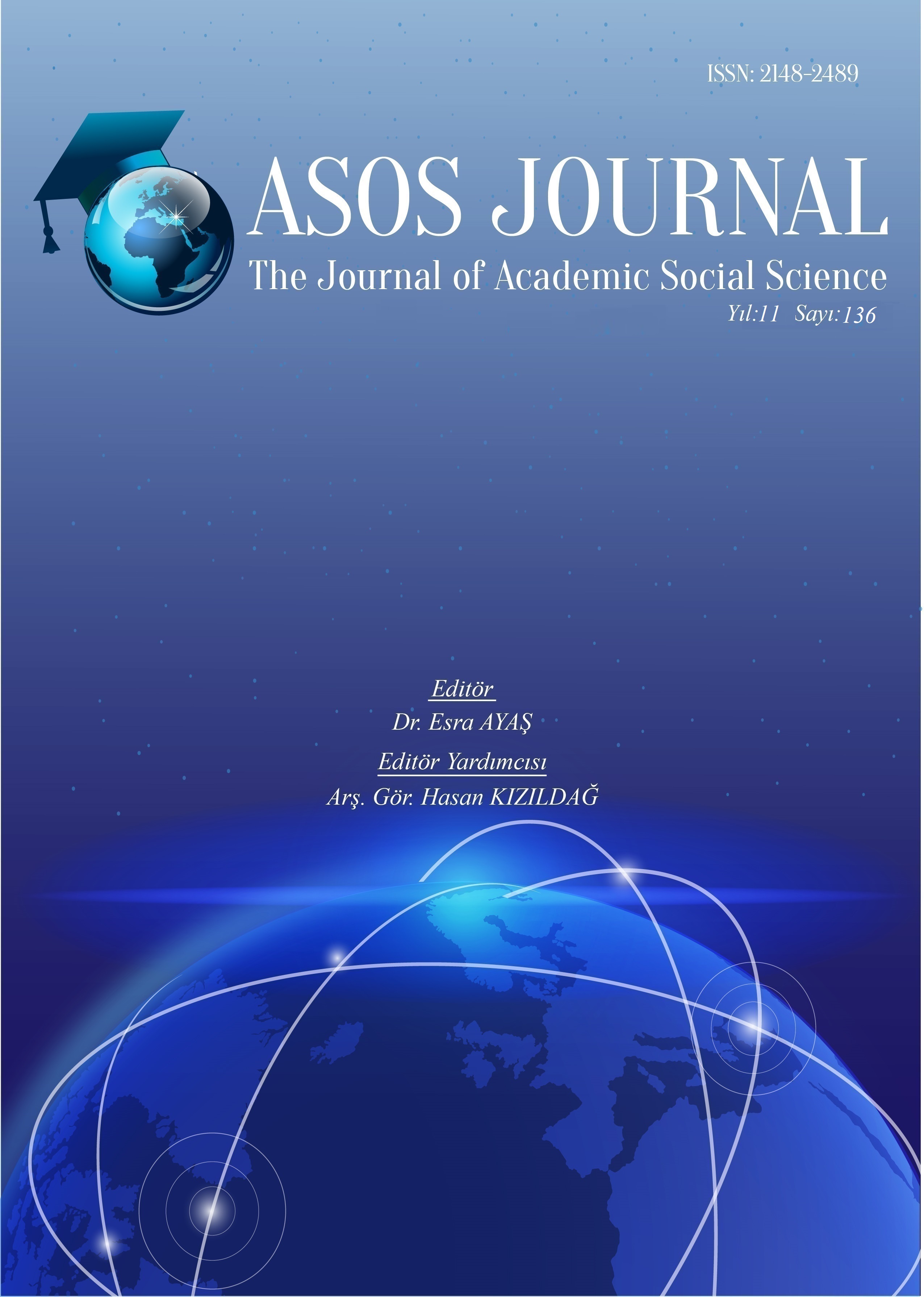VİYOLONSEL ÖĞRETİMİNDE FLIPPED LEARNING ÖĞRETİM YÖNTEMİNİN İŞLEVSELLİK DURUMUNA İLİŞKİN ÖĞRENCİ GÖRÜŞLERİ
Author :
Abstract
Bu çalışmanın amacı; 2019-2021 akademik eğitim yılları arasında viyolonsel öğretiminde Flipped Learning Öğretim Yöntemi ile ders işleyişlerine katılmış olan öğrencilerin, bu yöntemin işlevsellik durumuna ilişkin görüşlerini ortaya koymaktır. Araştırma durum tespitine yönelik tarama modelinde gerçekleşmiş olup; odak grup görüşmesine dayalı betimsel bir çalışmadır. Araştırmanın çalışma grubunu 2019-2020 ve 2020-2021 akademik eğitim-öğretim yıllarında Gazi Üniversitesi, Gazi Eğitim Fakültesi, Güzel Sanatlar Eğitimi Bölümü Müzik Eğitimi Anabilim Dalı’nda lisans öğrenimi gören yedi viyolonsel öğrencisi oluşturmaktadır. Öğrenciler ile yapılan odak grup görüşmeleri sonucunda elde edilen veriler ise içerik analizi yöntemi ile çözümlenerek yorumlanmıştır.F.L.Ö.Yönteminin viyolonsel eğitiminde uygulanabilirliğine, çağın getirdiği teknolojik ve toplumsal gelişmeler potasında, eğitimde fiziki ve geleneksel sınıf kavramının ötesinde ihtiyaç duyulan güncellemeler bakımından kullanışlılık, ulaşılabilirlik ve tercih edilme nedenlerine dair katılımcı fikirleri doğrultusunda paradigmalar ve öneriler sunulmuştur.
Keywords
Abstract
This study aims to reveal the opinions of the students who participated in the teaching of the cello teaching with Flipped Learning Teaching Method between the academic years of 2019-2021, about the functionality of this method. The research was carried out in the scanning model for due diligence; It is a descriptive study based on focus group discussion. The study group of research consists of seven undergraduate cello students studying at Gazi University, Music Education Department in the academic years of 2019-2020 and 2020-2021. The data obtained from the focus group interviews with the students were analyzed and interpreted with the content analysis method.Paradigms and suggestions were presented in line with participatory ideas about the applicability of the F.L.T. Method in cello education, in the context of technological and social developments brought by the age, in terms of usefulness, accessibility and reasons for preference in terms of updates needed beyond the physical and traditional class concept in education.





